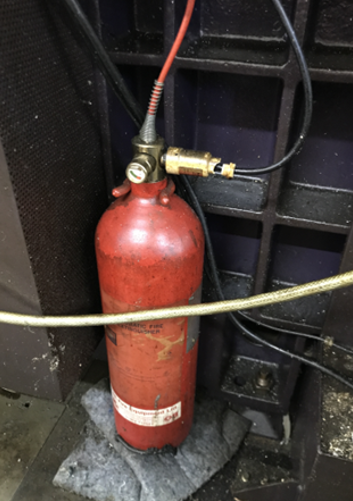Please note that information detailed in this article has been produced by Arch Insurance risk managers and/or surveyors and has not been verified for accuracy by a third party. None of the information should be taken as legal or professional advice and we recommend that for further information to speak to a licensed insurance broker.
Introduction
Last year, our Arch Surveyors completed over 750 surveys, travelling more than 75,000 miles across the UK.
As part of their role, our surveyors are keen to educate and inform all matters risk-related, not only internally at Arch to keep our underwriters informed, but to our brokers, to support their clients about the potential risks that could affect their businesses.
Below is a series of recent updates both on regulation and recent findings from our surveyors.

Fire Safety (England) Regulations 2022
The Fire Safety (England) Regulations 2022 came into force on 23rd January 2023, introducing new duties for Responsible Persons and establishing the Building Safety Regulator within the Health & Safety Executive. The Regulations implement many of the recommendations made to the government in the first phase of the Independent Review of Building Regulations and Fire Safety led by Dame Judith Hackitt following the June 2017 Grenfell Tower fire, in which 72 people lost their lives. The Regulations, which only apply in England, are a significant step forward in the protection of people in multi-occupancy residential premises and high-rise buildings (defined as being at least 18 metres in height or 7 storeys) in particular.
Further information can be found using these links (each opens in a new window):
HM Government fact sheet series
National Fire Chiefs Council animated video guide
BSI Commissioned to Develop New Standard for MMC
The British Standards Institution has been commissioned by the government to develop a new official standard for homes built using modern methods of construction (MMC). The new standard looks to ensure a higher quality of MMC builds across the board, providing more affordable housing for new home buyers and young people. Additionally, it will allow more people to benefit from the technology and boost the growth of the housing industry.
Please find further details on the Fire Protection Association website (link opens in a new window).
Lithium-Ion Batteries
London Fire Brigade Renews Warning Regarding E-Bike and E-Scooter Fires
In 2022, the London Fire Brigade attended 88 fires involving e-bikes — an increase of nearly 80% on 2021 — and 29 fires linked to e-bikes (2021 figure 30). When these batteries and chargers fail, they do so at speed, and because the fires develop so rapidly the situation can quickly become dangerous. More from BBC.com: E-bike fire warning renewed by London Fire Brigadeere.
New Fire Protection Association Guidance
The Fire Protection Association (FPA) has recently published revised guidance on the subject of lithium-ion battery safety. This can be downloaded from the FPA website using the links that follow (each opens in a new window):
RE1: Battery Energy Storage Systems — Commercial Lithium-Ion Battery Installations
RE2: Lithium-Ion Battery Use and Storage
Laundry Fire Safety
The FPA has recently released new guidance on fire safety for laundries with a focus on tumble dryers. The guidance considers the risks and provides example losses and risk control recommendations. Download the PDF BN4: Fire Safety for Laundries with a Focus on Tumble Dryers from the FPA website.
The life-threatening dangers of working under vehicles
Twenty-one workers in the motor vehicle repair industry have been killed in the last five years. Thirteen of these deaths involved work underneath a vehicle which wasn’t properly supported. Read more in the Health & Safety Executive press release here.
Spotted on Survey
This feature aims to give a flavour of the things the Risk Control Survey Team encounters during site visits and help highlight potential areas of concern.
The photo here shows an extinguishant cylinder forming part of the automatic fire suppression system fitted to a CNC sliding head lathe which routinely runs ‘lights out’ (without human assistance) with the premises unattended. The lathe uses near mineral oil to provide lubrication and cooling to the machine tool and workpiece. In some failure scenarios, friction can cause this oil to overheat and ignite.
A close look at the picture will show that the pressure gauge is faulty. The pressure switch – which connects to the lathe controls to shut the machine down safely upon discharge of the suppressant – is also damaged. The client advised that the unit is not serviced, although the fire extinguisher engineer looks at it during annual visits.
In addition to resolving these issues, the surveyor requested that the extinguishant cylinder is checked to ensure it is not date-expired (and if necessary, replaced). And that a second pressure switch output is provided to generate a ‘fire’ signal to the client’s alarm receiving centre upon activation of the suppression system, ensuring prompt attendance at the premises and, if needed, firefighting intervention.
